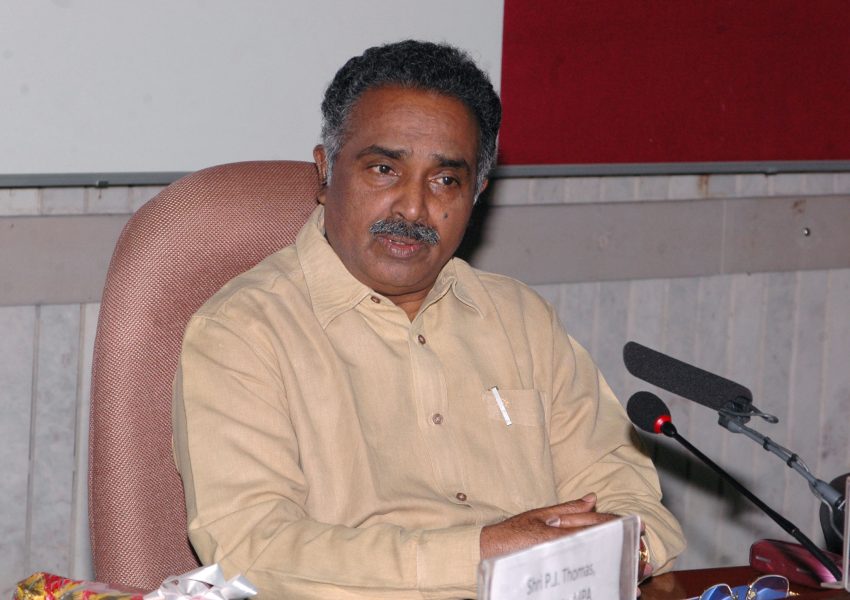
Governor has no power to dismiss a minister: PDT Achary

Former Secretary General of Lok Sabha PDT Achary on Friday (June 30) said a governor has no administrative authority and can only take action with the consent and recommendation of the Council of Ministers.
Achary stated this in reference to Tamil Nadu Governor RN Ravi’s recent move to first dismiss Minister V Senthil Balaji and then backtrack within hours due to severe backlash. In an interview with The Federal, he said to select or retain a minister is a political decision vested in the chief minister, and the governor has no role in it.
Also read: Governor cannot act unilaterally in dismissing minister: Legal experts
Excerpts
How do you see Tamil Nādu Governor RN Ravi’s decision to dismiss Minister V Senthil Balaji who is accused of corruption before backtracking on it?
As per the Constitution of India, the governor has no power to dismiss a state minister, as the Council of Ministers is chosen by the chief minister who is an elected representative of people of the state. A governor’s role under the Constitution is a settled matter. The Supreme Court’s constitution benches have made a series of decisions that have effectively established the governor’s duties and responsibilities.
The governor has no administrative authority and can only take action with the consent and recommendation of the Council of Ministers. The executive powers are vested in the elected government, which is responsible to the legislature and the people. Even though the ministers are appointed by the governor, the decision is made by the chief minister, so he cannot dismiss a minister he had not selected for that position. To select or retain a minister is a political decision vested in the chief minister, and the governor has no role in it. It’s the discretion and prerogative of the CM.
As far as the corruption charge is concerned, as per our law a person is innocent until proven guilty, so how can governor decide. Of course, there are moral and political issues regarding corruption, but it is not for the governor to take the final decision on it.
Also read: TN governor backtracked on Senthil Balaji’s ‘sacking’ on Amit Shah’s advice
Kerala Governor Arif Mohammed Khan has justified withdrawing his pleasure from state Finance Minister KN Balagopal last year over his remarks on people from other states, clarifying that withdrawal of pleasure does not mean his dismissal. What’s your take on this doctrine of pleasure?
The ‘doctrine of pleasure’ had created a bizarre situation in Kerala last year when the governor withdrew his pleasure from the finance minister without the advice of the chief minister. When pleasure is withdrawn, no minister can remain in office. But under the constitution the pleasure of the governor can be withdrawn only when the chief minister advises him accordingly. However, the chief minister expressed his confidence in the minister and so he stays on.
This doctrine of pleasure is taken from the Government of India Act of 1935. The Section 51 of the Act says that ‘the Governor’s ministers shall be chosen and summoned by him, shall be sworn as members of the council, and shall hold office during his pleasure’. Constitution of India was generally drafted based on this Act. When we adapted the new Constitution, all the other powers of the governor codified in this Act were omitted, except for this pleasure doctrine.
But with the power of the governor with respect to the choosing, summoning and the dismissal of ministers scrapped, this has little significance. The pleasure of the governor is non-existent only when the chief minister asks him to remove the said minister, which means the pleasure doctrine has no significance under the Article 164.
There are instances where the state governors sitting on legislations passed by the state assemblies creating sort of constitutional crisis. Does a governor have the power to hold a legislation indefinitely?
Such actions from the governors are evidence of the constitutional system’s failure. I think the governor has no right to sit on the legislations passed by the assembly. There are four alternatives available to the governor under Article 200 of the Constitution. Give assent, withhold assent, send the Bill back to the assembly for further vote, or reserve it for the President’s review are the choices.
Also read: Tamil Nadu Governor takes back dismissal of Senthil Balaji after severe backlash
This indicates that in order to give the legislative process a definitive finality, the governor should use one of these alternatives as soon as possible. When governors fail to exercise any of the aforementioned powers, this constitutional system is disturbed. I think such acts by governors are against the Constitution of India.
There are instances, at least allegations by the Opposition, of violation of federal system by the Union government using the governors. Do you see this as an attempt to topple the federal system?
A government with little faith in federalism and a proclivity towards centralisation can easily dilute our system of federalism using the very constitution, because it has a flaw that anti-federalism is ingrained in it. Our system is not really federal, it is only quasi federal. Federalism has not existed in our country historically. It was forced on the member states of the federation as a division of legislative power. There are tendencies of overreach by the Union government, and we all know it’s politics.

